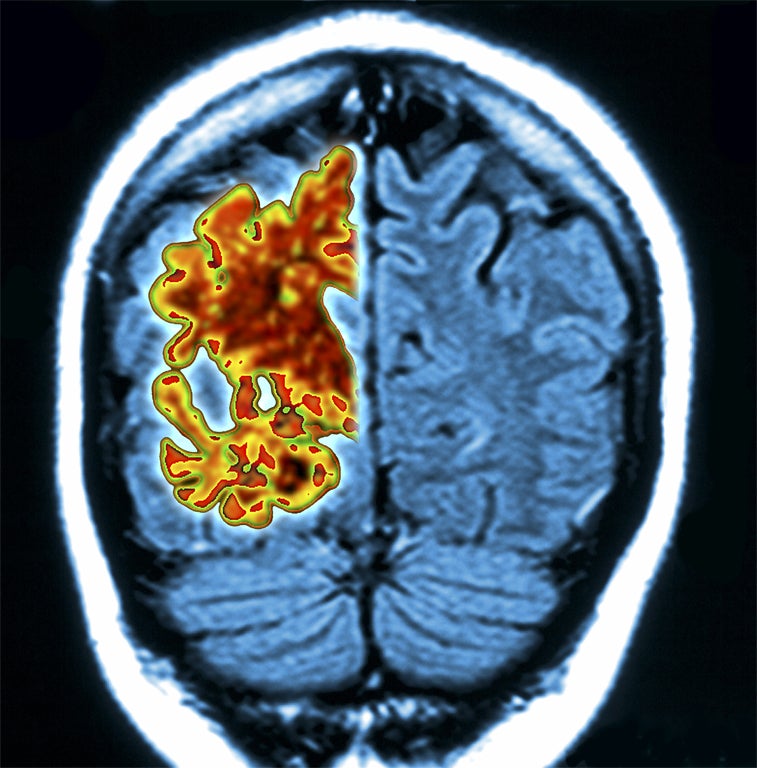Dementia research: Drug firms despair of finding cure and withdraw funding after a catalogue of failures
Alzheimer's will cause global economic crisis without breakthrough in treatment, experts warn

Drug companies are retreating from the search for a dementia cure after “repeated and costly failures” to develop a breakthrough drug, a major report has warned.
Scientific and financial challenges have meant that, between 1998 and 2012, there were 101 unsuccessful attempts to develop drugs for Alzheimer’s disease, with only three drugs gaining approval for treating symptoms of the disease, according to the study.
The report, compiled by the Dementia Forum of the World Innovation Summit for Health (Wish), warned that a “history of failures” has created “funding fatigue” among donors and “Big Pharma”. Major drug companies had halved the number of research programmes into central nervous system disorders, a category which includes dementia, between 2009 and 2014, the report said. Experts said that with no known cure and a huge increase in cases expected within a decade, “a massive step change in research funding” was needed.
The number of people living with dementia worldwide is to reach 135 million by 2050, by which time the cost of care is anticipated to exceed $1 trillion (£652bn) in the US alone.
The Wish report warns that, without a major drug breakthrough, dementia will “move from a major health challenge to a global economic crisis”.

Dementia research has long suffered from chronic underinvestment compared with other major diseases such as cancer and HIV/Aids. Pharmaceutical giants including Pfizer and Eli Lilly have seen potential Alzheimer’s drugs fail in recent years, often at costs of hundreds of millions of dollars – and there have been no new treatments for dementia licensed in the UK for 12 years.
Any further retreat from the sector would threaten the ambition, set out a year ago, for the G8 nations to find a dementia cure or major new treatment by 2025.
The report was presented at Wish 2015, a gathering of health experts in Doha, Qatar. Wish is an initiative of the Qatar Foundation, the charitable organisation linked to the Gulf state’s ruling al-Thani family. Its executive chair is the former Labour health minister Lord Darzi. He said the social and economic burden of dementia was already clear.
“Yet the future costs to societies and economies will be enormous without significant intervention now,” he added.
Wish’s Dementia Forum is chaired by Ellis Rubinstein, president of the New York Academy of Sciences. His report states: “Experts speculate that the lack of funding [for dementia research] has created an environment of competition in academia and that repeated and costly failures in drug development have created funding fatigue in donors and pharmaceutical companies.
“They believe this has caused the field to become more conservative, and limited unconventional strategies and parallel drug discovery opportunities.”
The report sets out a range of potential new funding options for dementia research, including attracting private investment from industry and high net worth individuals. Social impact funds, in which governments or charities shoulder first losses from investments in order to “attract traditional return-for-investment focused investors, are also mooted.
Dr Matthew Norton, head of policy at Alzheimer’s Research UK, said there was a “perception” that Big Pharma now feared “diseases like Alzheimer’s are too tough to crack”.
“Yet there are good reasons to believe that this challenge can be met,” he said. “Until relatively recently dementia was poorly understood, but the tide is beginning to turn: scientists now have a much better understanding of the mechanisms involved in the diseases that cause dementia, and how they might be tackled.”
Dr James Pickett, head of research at the Alzheimer’s Society, said: “With no known cure, limited treatments, and a projected prevalence of one million within the decade, we need a massive step change in research funding in order to develop new treatments.”
He said that public-private partnerships designed to share the risk of investment had potential for future funding of research.
One such initiative – the Neurodegeneration Medicines Acceleration Programme (Neuro-MAP) – will allow charities to choose stalled drug projects sitting in pharmaceutical company libraries and push for clinical trials. The £30m fund, launched last year, is backed by a number of charities including Alzheimer’s Research UK and the Alzheimer’s Society.
The UK government has sought to take a leading role in the global fight against dementia. London hosted the world’s first Dementia Summit in 2013, where the Prime Minister pledged to double the country’s research funding for dementia to £66m in 2015. In the UK, 850,000 people live with dementia.
Join our commenting forum
Join thought-provoking conversations, follow other Independent readers and see their replies
Comments